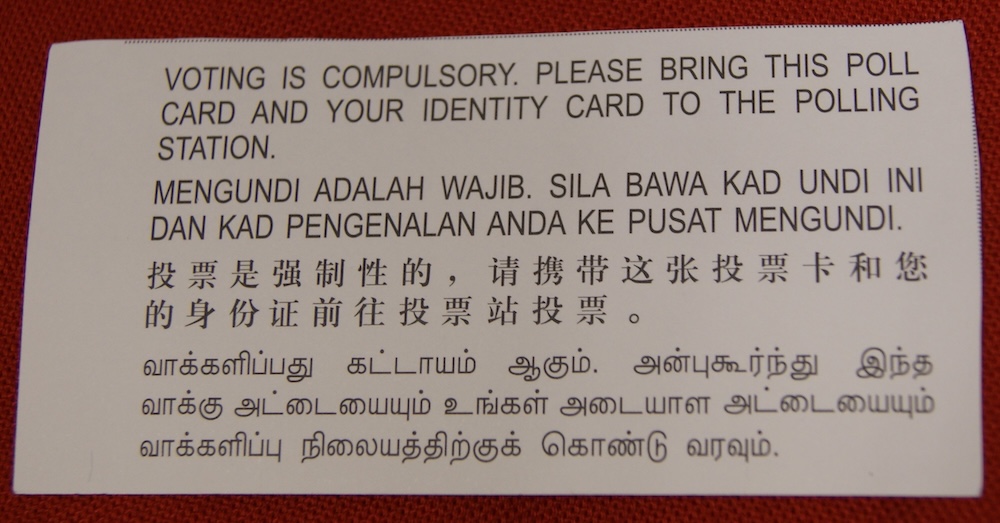Quadrilingual Poll Card from Singapore
From Mok Ling:
As I'm writing this (evening of 3 May), my friends across the Strait of Malacca in Singapore are eagerly awaiting the results of their most recent general elections. As I've found out, in Singapore, voting in elections is not only a civic duty but mandatory by law!
I happened to come across this image showing the reverse of a poll card issued to all voters:

The reverse of a poll card issued for the Singaporean presidential election, 2011.
The polling station in question was at the void deck of Block 115 Clementi Street 13
in the Holland-Bukit Timah Group Representation Constituency. (source)
Read the rest of this entry »